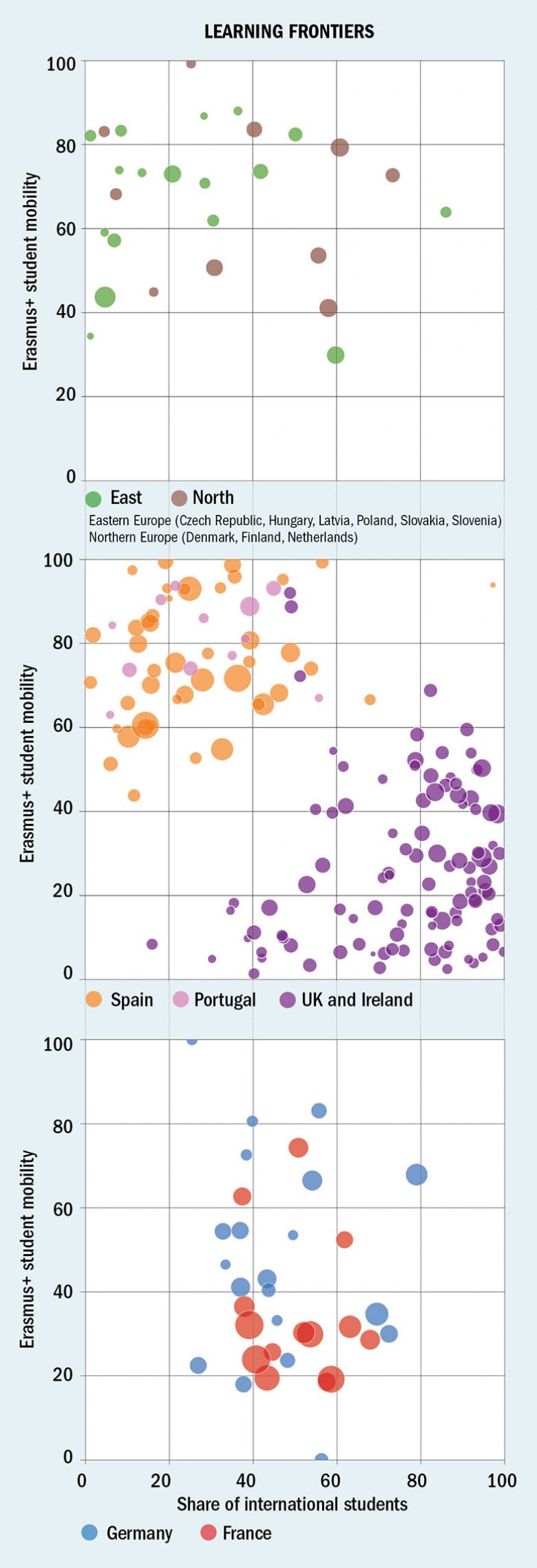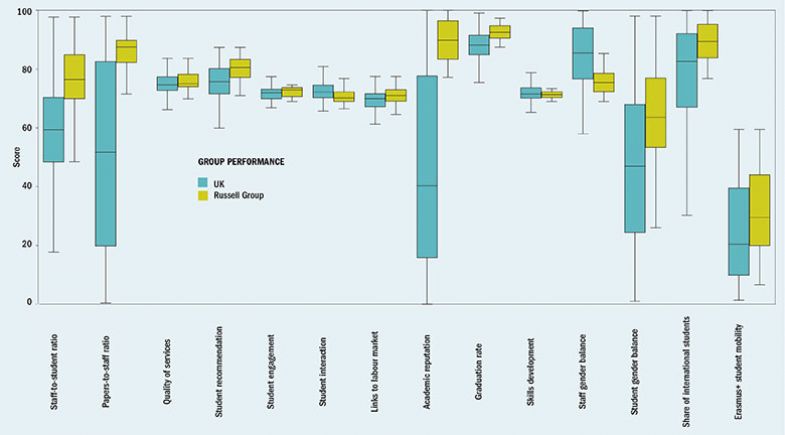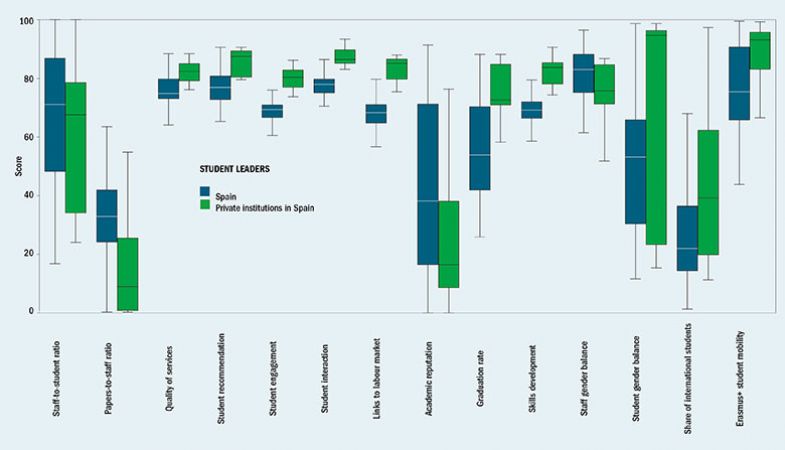Browse the full THE Europe Teaching Rankings 2019 results
Internationalisation in European universities tends to have a very different profile depending on which country you are observing, as the “Learning frontiers” charts below demonstrate.
Each graph shows how universities in certain nations or groups of nations score for the share of students who come from abroad and the proportion who spend time in another country through the Erasmus+ exchange programme. The size of each dot represents how many students are at each institution.
Universities in France and Germany (bottom “Learning frontiers” chart) display fairly similar profiles for these two measures, with moderate intakes of international students and low participation in Erasmus+. Meanwhile, a few outlying universities have higher Erasmus scores, mostly in Germany.

However, comparing Portugal and Spain with the UK and the Republic of Ireland shows more polarisation. Institutions in the UK and Ireland have campus cohorts that are much more international but have relatively small numbers engaging in Erasmus+. On the Iberian peninsula, though, the opposite is the case.
The last pairing features countries in northern Europe and eastern Europe. Most institutions here have lower scores on international students but high marks for Erasmus+. But there are also a significant number of notable outliers that score much higher for international students on campus.
Meanwhile, the two sets of “box-and-whisker” charts below look at how particular university groupings in two countries fare on all the Europe Teaching Rankings metrics. Each box-and-whisker plot shows the spread of scores among universities in each group on each metric.
In the UK, the advantages enjoyed by Russell Group universities on academic reputation and staff-to-student ratio are clear, but in terms of staff gender balance the grouping lags behind.
The final chart shows data from Spanish universities, where private institutions tend to score more highly on metrics determined by the ranking’s student survey. It appears to be mainly research and reputational measures where they trail Spanish institutions more generally.
Register to continue
Why register?
- Registration is free and only takes a moment
- Once registered, you can read 3 articles a month
- Sign up for our newsletter
Subscribe
Or subscribe for unlimited access to:
- Unlimited access to news, views, insights & reviews
- Digital editions
- Digital access to THE’s university and college rankings analysis
Already registered or a current subscriber?









